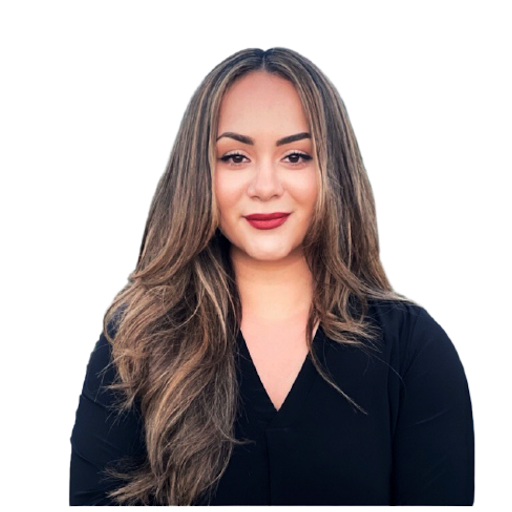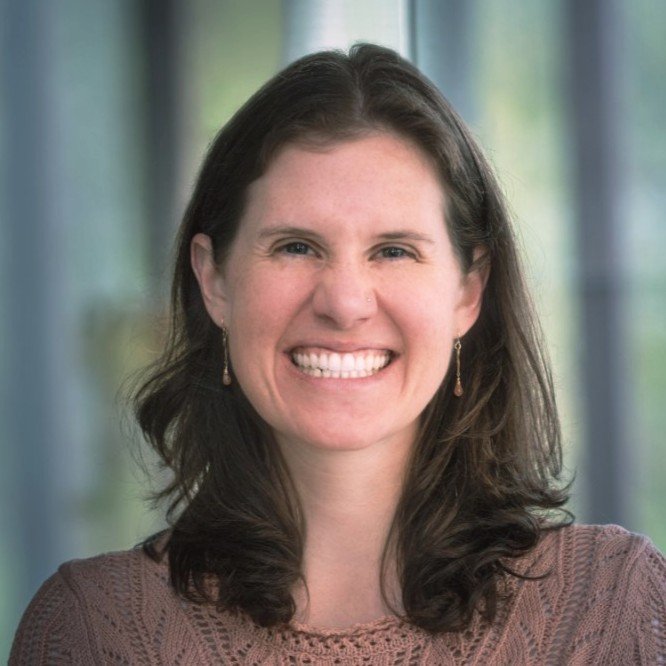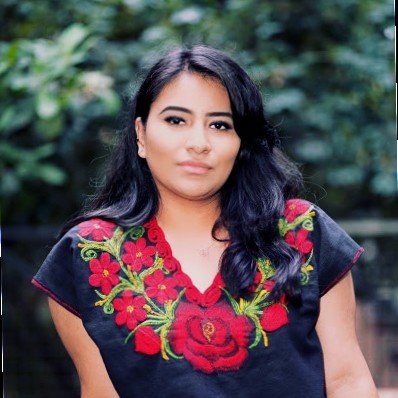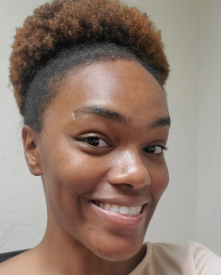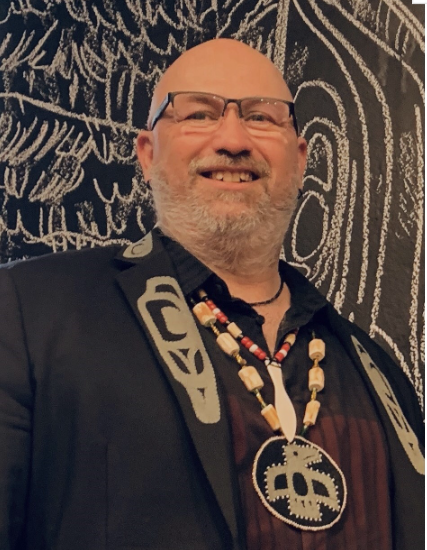Yani Cisneros
Bilingual Business Support Specialist, Yakima Valley Business Development Association
Interview by Bogdan Banica & Noura Abdelkader
November 08, 2022
Yani Cisneros is a Bilingual Business Support Specialist at the Yakima Valley Business Development Association in central Washington and also serves as Chair for the Central Washington Hispanic Chamber of Commerce. Here, Cisneros emphasizes the importance taking a multicultural approach to advance Digital Equity, placing particularly emphasis on providing people resources in their own languages inclusive of resources that tailored to improving Digital Equity for small businesses.
Q. What is your definition of Digital Equity?
YC: Digital equity to me means that everyone has access to the Internet or some form of connectivity, but it's a two-part question for me or answer for me. One issue is the broadband and allowing everyone to have access to connectivity. The other side is, once we get that, especially in the area that I'm in, it’s very rural. So the other component is, can we implement some types of trainings so that individuals who have never had access to the Internet have never potentially owned a computer get up to speed with proper tools and proper training?
Q. What are you passionate about in this space? What motivates you?
YC: Why it motivates me is because in my role for the Yakima County Development association - we're an economic development organization - but my focus is primarily small businesses, and I work with a lot of small businesses doing those types of trainings. When people want to open a new business, the common issue is the digital divide that they have to face. They're going into business because they're very passionate about what their services are going to be, or what products they're going to offer, but the one issue that scares them is connection. Where do they go to get this business license? Are they following the right licensing and permitting procedures? So it's really helping them navigate all of that.
Another component is during Covid. So many youth were sent home to work to do online school. And you know, parents were meant to be that gap to help with five year old six, seven, any age, I guess, just to help them get connected at home. But the issue was one that so many parents have themselves. They haven't ever accessed the internet themselves. Haven't ever had a computer or understand certain programs or understand how different profiles work and whatnot and just to understand passwords and emails stuff as basic as that for us, right?And so that's one of the biggest passions for me in a very rural area. We do have some areas that don't have good connectivity or connectivity at all, but even in the ones that do it's also letting individuals know and giving them the right tools so that they can feel confident when they are accessing the digital world.
Q. What values and/or principles are important for everyone in this space to do good work?
YC: Going back to that component of giving individuals the right training or resources, I would say the thing that we need the most, more so I think than understanding their language and culture, is patience.
Going back, these are individuals who potentially have never used a device that can allow them to connect. So then, having that patience to be able to work with them, understanding that they're not potentially going to connect in the next week or two - it's going to take some time, but seeing that growth in them I think is very important. So patience, ultimately.
Then, I would move on to having information and materials available for them in their in multiple languages, and in whatever language that person you're working with feels most comfortable in, so that when they are navigating the Internet, they feel safe. What I mean by that is the component of that is also browsing the internet safely, having the right malware protection in place and what not, in anti-viruses, and then a component of that, of course, cyber security. Are we doing these trainings as well, and education components? And are we having those available in languages that people can understand?
Q. What have been big wins for you and how did they happen? What sorts of support were needed for them?
YC: The big wins are seeing progress one by one. Someone that comes to my mind, and it's probably because I was talking to them two days ago, but when he first started he had no idea how to turn on a computer. He had his phone but he didn't have it connected to the internet and he didn't know the email component of it. We've been working with him since 2021, so it's been a little bit over a year. Just the other day he called me, and he's like, “Hey, i'm completing this form” and he's also trying to learn English, and he's like, “I’m just trying to understand. They're asking for a title, what is that?” So then I told him what it meant in Spanish, but when I hung up I was like, “Oh, my gosh! He doesn't even come into the office to do this form together now, because now he has the confidence to do this himself!” And of course he's gonna call still because of a language translation, and that's something that we can't change because some of these forms have to be in English because it's a federal form. But just seeing that growth of the individual that can affect on my end. It's their business, but the way I see it, it also affects their home, because this business owner has kids who are going to school, and so then he being able now to take that and show their kids and help them connect is something that we just see as a big domino effect. Once we get something rolling, potentially, he can all start getting his family involved in all of this. And so I think the biggest wins are the growth of the individuals that we help, and understanding that it is going to take some time, but once they have that confidence in themselves, the world is the limit for them, because now they're keeping up to date with all their licensing and permits, and all of that stuff has to now be done electronically.
The second part was the support. I would say it takes not just individuals to do this, but it also takes leadership. Without the proper leadership, who sees the end result of this and the impact and the magnitude that it can have for allowing individuals like myself to focus one on one to make the trainings that we do very targeted and personalized? Because I don't believe that one digital training is gonna fit for all, just because there's all different needs, especially if you incorporate that language factor. I think having the proper leaders who are also able to champion the work that we're doing is very good and critical.
Q. Do you have any advice for our project?
YC: I think you both understand: It's the fact that it's not just giving everyone access to the Internet. It's also that technical training side and having patience. It's not just our elderly community, it's all ages, and it's not just our hispanic individuals, it's individuals of all demographics. Understanding those components will allow us all as a state in Washington to really push the dial when it comes to truly being equitable in our digital access.”
The big wins are seeing progress one by one.
Q. What is your organization’s goal in moving towards digital equity? What steps are being made by your organization to reach that vision?
YC: As an economic development organization, our focus is specifically businesses, but our goal is to bridge that gap of Digital Equity to even out the playing field when it comes to our business owners. We believe it's gonna take some time but we’ll do it step by step - showing them different accesses, showing them how to use a computer, showing them how to use email, and having cyber security training. At the end of the day it’s about giving them the choice to learn, and empowering them to make their own decisions. I think that's one way that we continue to move on the broadband spectrum. We really are supportive of whatever our commissioners are trying to do to get broadband into all the parts of our county. So one day... I’m hopeful! It's gonna take time, but we'll get there.
Q. What’s an example of some good work so far and who’s been doing it? Who would you like to give a shout-out to?
YC: Someone that came to my mind is the Yakima Valley Community Foundation. They do a lot of amazing work. One thing they did, I believe it was in 2021, they reached out to us and asked, “What industry has been hit so hard during Covid because of this digital divide that now everything is done electronically?” We had just finished with one of our cities, and there were so many daycares that were affected all over the place. The Foundation gave the daycare industry and the city of Grandview computers. Just the fact that we now are giving these individuals access to owning a device, so now they don't really have to make that purchase themselves, to try to figure out if this is something that they can learn, I think is amazing. I think it's a way of bridging that gap, especially when you know that there's connectivity in that area, just giving them the proper tools for them to do that, especially in an industry that has been affected so much during Covid and that's still trying to just stay afloat.
Another organization I think is an important example is Pacific Power. Language is so important when it comes to technology and access to the Internet. Pacific Power is trying to translate their whole website into Spanish and they've hired somebody local to do that. I think it is huge when organizations are looking at the bigger picture on how they themselves can do better. Those are two organizations I kind of see as pioneers into this shift into the digital world.

